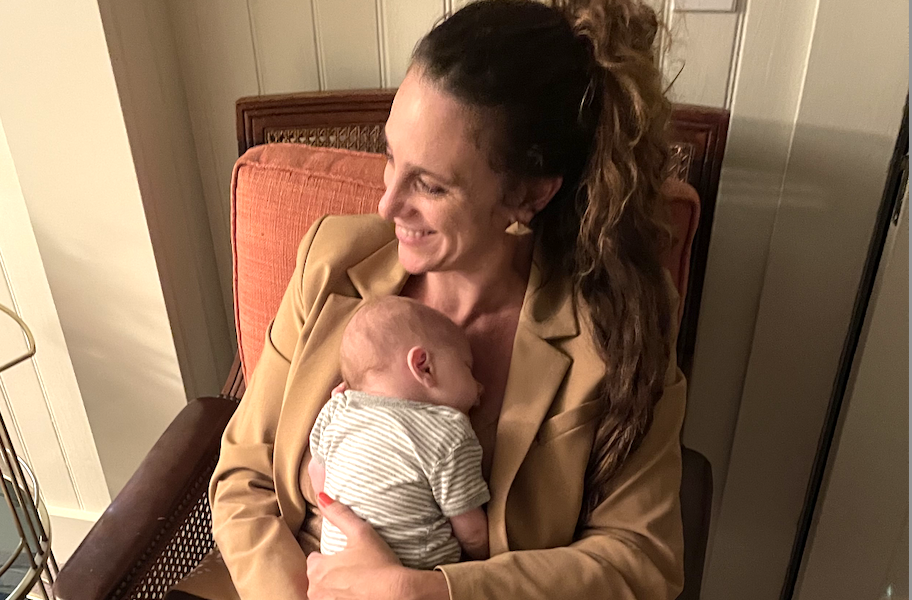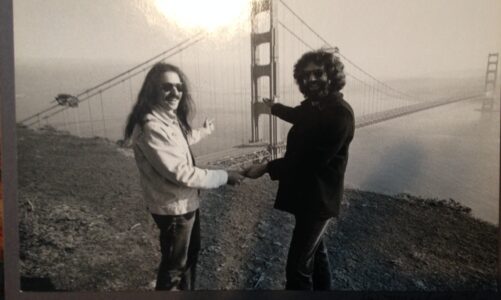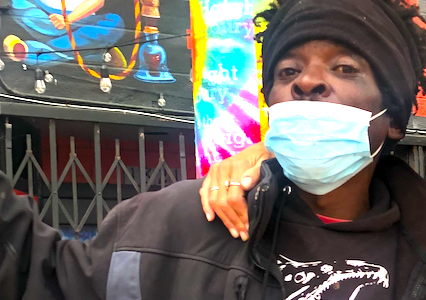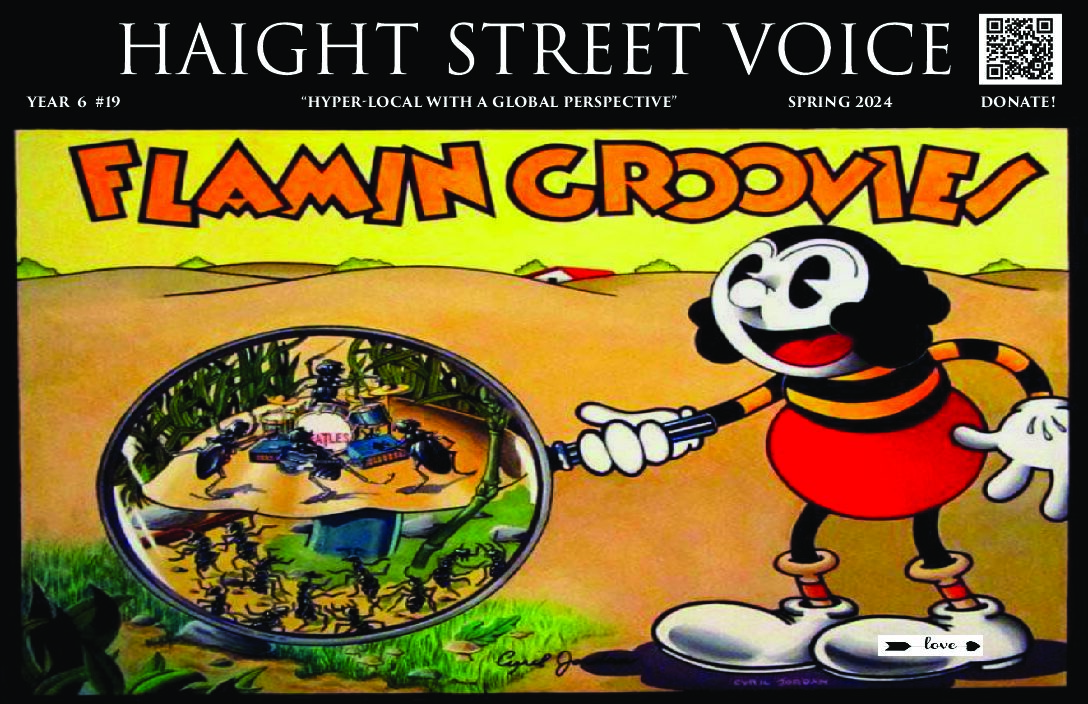Jennie Stepanian, a San Francisco native and attorney, recently shared her remarkable journey into the world of psychedelic law. Her road from Deadhead, to Public Defender, to an advocate for psychedelic law showcases the interconnectedness of San Francisco’s history, music, and social justice.
HSV: You said you were a Deadhead and grew up in SF, did you always want to get into law?
JS: Yes, as a Deadhead, I traveled on tour. On the road, I would get phone calls from people who got pulled over, searched and busted, in very obscure towns in Texas, Kansas, Iowa — places where you did not want to get caught with any type of marijuana. I would call my father, Michael Stepanian (founder of the Haight Ashbury Legal Organization aka HALO in the early ‘60s) and say, “Hey, I really need a lawyer in Kansas, can you help us? We really need this, please, please!” I would explain the situation and get the right lawyer to handle the case. My dad was part of NORML (National Organization for the Reform of Marijuana Laws) and able to find the best lawyers in any state.
HSV: On Haight Street, I see a lot unhoused people with mental health issues and substance issues. Do you have anything to say from the standpoint of this situation in San Francisco?
JS: It’s a huge problem everywhere, not only in San Francisco. The old way of dealing with hard drug addiction through methadone clinics, which the Tenderloin has plenty of, is not working.
Psychedelics help people face the cause of their trauma straight in the eye. If one combines microdosing psychedelics and therapy, plus the 12 steps, a lot of people can be helped. The microdosing can stop when the therapy is completed. With methadone there is no end in sight.
HSV: How did you connect with Dr. Smith?
JS: I have known Dr. Smith my entire life as the founder of the Haight Ashbury Free Clinic and go-to expert on addiction medicine. Last year I worked with DecrimSF on a decriminalization Resolution the SF Board of Supervisors passed unanimously. The Resolution was an Order from the Board of Supervisors protecting gifting, gathering and growing plant psychedelics from police interference. Dr. Smith helped me prepare for the hearing.
HSV: I hear you are a new mom, Congratulations! What would you say to your son in 18 years?
JS: Follow your heart and never stop believing that you can change the world.
FULL TRANSCRIPT
Haight Street Voice: So I just wanted to start with the fact that I met you via Dr. David E. Smith, who I’m working with at the Haight Ashbury Psychedelic Center, and all of a sudden I hear the name “Stepanian” and I thought, “Wait a second, I know that name.” Your father, Michael Stepanian and Brian Rohan (who became a dear friend near the end of his life) started HALO: Haight Ashbury Legal Organization in the ‘60s. HALO and Dr. Smith’s Haight Ashbury Free Medical Clinic came out of the 1960s because kids flocked to San Francisco for our openness, acceptance, and music. Many people ended up on the streets and would get sick or hurt and be turned away or arrested at the hospitals because they were hippies and smelled like weed or had weed on them. HALO and Dr. Smith’s clinic helped these people with free legal and medical help when “regular” lawyers would not take their cases, and hospitals turned them away.
What were your beginnings and how did this morph into you working with Dr. David E. Smith over these years? Where were you born, maybe we should start there!
Jennie Stepanian: I am a native San Franciscan. My mother was an art teacher, and my father is a criminal defense attorney. The Haight Ashbury Free Medical and HALO began because there was a great need in the 1960’s for free legal and medical services during the Summer of Love. The Bay Area has a rich history of community organizing. I grew up in a household that taught me to help as many people as possible.
In 1967, at the Human Be-In, one year after the possession of LSD was made illegal, Bill Graham got on stage and announced to 30,000 people that Michael Stepanian and Brian Rohan would represent everyone for free. The next morning, there was a line wrapped around the block of kids trying to get free legal advice at 710 Ashbury Street, home of the Grateful Dead and my father’s law office. Needless to say, Bill Graham did not ask my dad or Brian’s permission to make this announcement, but it was good for business.
Dr. Smith and I were close because we both shared the passion of the Grateful Dead. Since I was very young, I was a Deadhead. Dr. Smith and I were always very connected because we loved the Grateful Dead, this music that brought so many people together for decades. Dr. Smith and I would run into each other at Dead shows, and he’d send my parents photos of us at the show, which was great! It’s always good to be with a Doctor at a Dead show.
Last year I worked closely with DecrimSF to present a decriminalization Resolution that the San Francisco Board of Supervisors passed unanimously. The Resolution decriminalized psychedelic plant medicine in San Francisco, in the form of an Order from the Board of Supervisors protecting gifting, gathering and growing of plant psychedelics from police interference. I went to Dr. Smith to prepare for the hearing on the Resolution, he is the go-to person on addiction medicine and talented at breaking down complex medical and scientific concepts.
HSV: And he’s so cool to be around! Like when he had the HR360 benefit at the Great American Music Hall a few months ago, and there he is in his tie-dye — it’s so cool! He’s so young at heart, which is so lovely. So is your dad! How does your dad feel about you going in this direction? I’m sure he’s probably thrilled. What does he say?
JS: My dad is thrilled. He is a pioneer in the legal community and paved the way for many of us lawyers. He went through the drug war for decades and is still in the trenches at 83 years old. I am privileged to be able to pick up the phone and call him to pick his brain, and he still takes my phone calls.
HSV: So you said you grew up in San Francisco, you were a huge Deadhead, you grew up with the Dead. Did you always know you wanted to get into law? Did you ever foresee that you would end up where you are today and sliding into the psychedelic law stuff?
JS: Yes, as a Deadhead, I was on the road and traveling on tour. It was definitely tough on my parents. As I was on the road, seeing shows, in different towns every night with a very close group of friends, I would get phone calls from people who got pulled over, searched and busted, in these very obscure towns in Texas, Kansas, Iowa – places where you did not want to get caught with any type of marijuana.
I would get calls to find lawyers in the area who could represent all these kids getting busted as they were traveling through towns to get to the next show. I would call my father and say, “Hey, I really need a lawyer in Kansas, can you help us? We really need this, please, please!” I would explain the situation and get the right lawyer to handle the case promptly. There were no cell phones back then, so we would operate on pay phones or at the local diner. My dad was part of NORML (National Organization for the Reform of Marijuana Laws) and other really good organizations that have a large network of lawyers in every state.
Growing up I would tap into that network and find attorneys for friends, and friends of friends that needed help. I felt like I had a responsibility to help others. When I chose my career path, it fell into place that I would practice law. This drive to be of service motivated me to be a Public Defender in Humboldt County and a bar panel attorney in Los Angeles.
HSV: Well done! What was it like working in public law?
JS: As a Public Defender, I learned how to litigate cases in court, examine witnesses and argue motions. It was an extremely valuable experience. I love being involved in bringing psychedelics above ground to help society, but I am a court room lawyer first and foremost. I am still litigating criminal cases, preparing expert witnesses, researching new changes in the gang law (Penal Code 186.22), and working on homicide cases.
Through my work as a public defender in Humboldt County, I started a Tribal Diversion program, where, as an enrolled tribal member and criminally charged in Superior Court, the case could be transferred to tribal court for resolution (usually, a treatment plan and dismissal of the charges upon successful completion). This approach is modeled after Penal Code 1001.36, a mental health diversion. It provides that if you are charged with a crime, felony, or misdemeanor, and you can show a nexus between a mental health condition and the crime, provided the individual completes a treatment plan put together by a healthcare provider, the charges may be dismissed.
Our legislators and courts are finally realizing that people’s untreated mental health problems are at the root of why the police get involved in many cases. People living with trauma and addiction commit crimes because they cannot break their addiction or they’re off their meds and caught in the criminal justice system for years. It’s incredibly costly for our citizens and courts.
In defending and advocating for my clients, I needed to understand mental health conditions, such as PTSD, addiction, and trauma. That’s when I started researching psychedelic medicine and talking to Dr. Smith about what full access would look like if health care changed directions.
HSV: That might be a good segue, at the Haight Street Voice, I work at the corner of Haight and Ashbury I see a lot of unhoused people with mental health issues and substance issues. Do you have anything to say from the standpoint of this situation in San Francisco?
JS: Yes, it’s a huge problem everywhere, not only in San Francisco. There is a drug problem and a homeless problem in our city. There’s no doubt. The old way of dealing with hard drug addiction is through methadone clinics, which the Tenderloin has plenty of, and it’s not working.
Methadone is a synthetic opiate used in the detoxification and maintenance of patients. Experts increasingly see psychedelic therapy as an effective, low-risk tool to help patients break their dependence on other substances. Psychedelics help people face the cause of their trauma straight in the eye. If one combines microdosing psychedelics and therapy, plus the 12 steps, a lot of people can be helped. The microdosing can stop when the therapy is completed. With methadone there is no end in sight.
HSV: So this whole realm of psychedelic law, I noticed that your cool tagline is “Criminal defense is a right, not a privilege”. I love that. Psychedelic law, it really is kind of like the Wild West, I mean this is a whole new terrain, like your father’s era dealing with marijuana. Is that true? Is this very parallel to the same idea? The definitions or the boundaries of psychedelic law are kind of wide open. Is that true?
JS: You’re correct, there are parallels. The fact that all these substances are Schedule 1 controlled substances hinders professionals from doing their jobs. Medical doctors assisting their patients with psychedelics operate underground and do not publish their findings, and lawyers are challenged with a limited amount of defenses in court. It is strange to practice medicine underground.
Psychedelics have a religious aspect. Churches have formed in San Francisco and other municipalities where psychedelics are considered a religious sacrament of the church and members believe that they are exercising their freedom of speech and religion by using psychedelics. But it is an uphill battle, I think that focusing locally and keeping the momentum going, with bills such as SB-58 which successfully moved through Sacramento and soon will be presented to Governor Newsom to sign, is a step in the right direction.
HSV: Absolutely! PEAC (Psychedelic Entheogen Academic Council) meetings are roundtable with Haight Ashbury Psychedelic Center at the Psychedelic SF Gallery. It’s an effort to have the doctors, the lawyers, and others talking about this territory. We also open the meeting to the public in the neighborhood so that the community can come and ask any questions they might have. I’m really excited about these psychedelic roundtables we’re having with Dr. Dave.
JS: Definitely. I started a similar type of organization called WIP (Women Integrating Psychedelics). WIP is a female think tank and we address issues such as how to protect healthcare providers and come up with realistic remedies.
HSV: I hear that you are a new mom. Congratulations!
JS: Thank you! My son’s name is Plez Stepanian Falls and he is two months old. He is my pride and joy, and such a good baby. I’m so blessed and grateful that he is healthy. He’s very patient and loving. He just started smiling! I’m so excited and learning so much every day.
HSV: My question to you, and I thought this was kind of a fun one to ask, is: What would you like to say to your boy let’s say 18 years from now, as far as I think this is really a critical point in time of the evolution of psychedelics, acceptance. What would you like to say to him 18 years from now about all of this?
JS: Follow your heart and never stop believing that you can change the world.
The Law Offices of Jennie Stepanian — 819 Eddy Street, San Francisco — can be reached at 415-771-6174.




